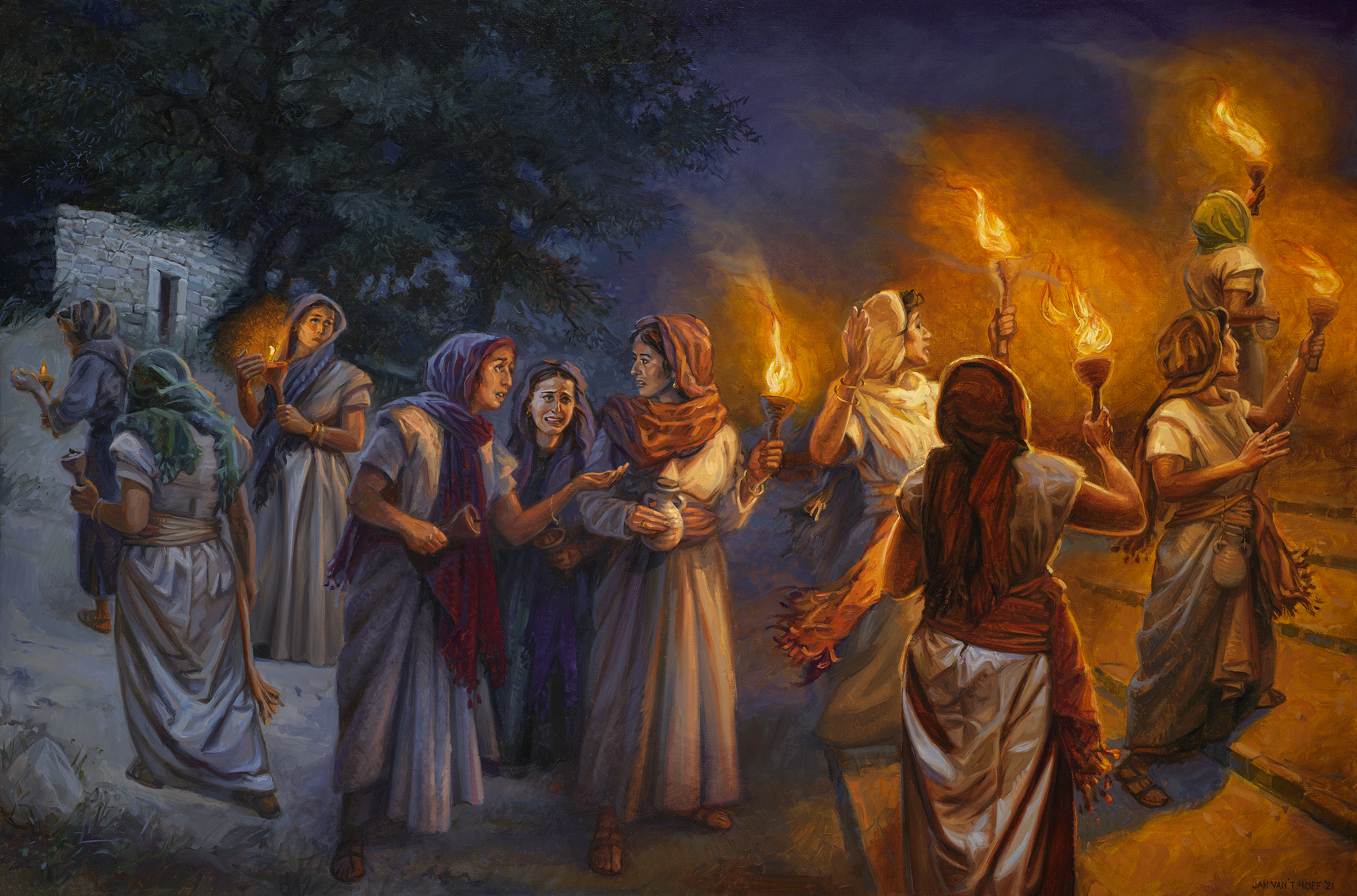I love to wait. It’s one of my favorite things to do. I choose the slowest lane while driving and the longest line when shopping. I never mind when my doctor is an hour late or my food never arrives. What about you? Don’t you just love to wait? Well, if you know me well at all you know that the first sentence of this devotional is unequivocally untrue. Waiting is my kryptonite. All of the virtuous character I might possibly lay claim to is out the window whenever I have to wait. Yet, all of life seems to center around waiting.
Waiting is at the heart of Advent. Think about all the people we see in the birth narrative of Jesus. Zechariah (Luke 1) had to wait the entire time his wife was pregnant just to be able to talk again. And Elizabeth (Luke 1) – not only did she have to wait the nine months she was carrying John (later known as John the Baptist), but she was also way past her birth bearing days when she found out she was pregnant.
Simeon and Anna, both of whom were always found in the temple, (Luke 2) waited for years for the consolation of Israel, and his redemption. Think as well about the four hundred years of silence the Jews had to wait for a prophet after the era of The Prophets came to an end.
Ruth Haley Barton calls waiting the crucible of transformation. There are two virtues necessary for this kind of transformation. We need patience, and we need long-suffering, both of these are so important. Patience, I think, is the way we learn to wait by staying the course. I think the title of Eugene Peterson’s book “A Long Obedience in the Same Direction” describes patience well. If patience is a fruit, we know we can only get there by abiding with Christ in the Spirit. By nature, none of us are able to do patience well. We need the help of the Holy Spirit, don’t we? That’s the heart of Paul’s theme in Galatians 5.
22 But the fruit of the Spirit [the result of His presence within us] is love [unselfish concern for others], joy, [inner] peace, patience [not the ability to wait, but how we act while waiting], kindness, goodness, faithfulness, 23 gentleness, self-control. Against such things there is no law.
Galatians 5:22-23 – The Amplified Version
You get the sense here that there is a somewhat complex idea of patience. The NKJV uses the word long-suffering instead of patience. Thomas Aquinas believed that patience and long-suffering have different ends in mind and probably Paul had both in mind when describing this fruit. The Latin word Aquinas used for long-suffering is longanimity. Both deal with “enduring difficulties for the sake of a good.” But patience focuses on the difficulties, whereas the virtue of longanimity focuses on the good to be received in the final hour.
Patience helps us stay the course, it helps us maintain serenity of spirit, and longanimity directs us toward the good we are waiting for, helping us remain steadfast in pursuit of the good. Luke’s account of those men and women he describes in Luke 1 and 2 has this double meaning of patience. Think about both Anna and Simeon. I love how Luke describes Simeon. 5 Now there was a man in Jerusalem, whose name was Simeon, and this man was righteous and devout, waiting for the consolation of Israel, and the Holy Spirit was upon him. (Luk 2:25 ESV) Their wait was incredibly long, and they only had the reassurance of what they knew of God to sustain them.
The waiting of the Christian church, therefore, is the waiting and longing and hoping expressed in the haunting cry at the very end of the Bible: ‘Maranatha: Come Lord Jesus’ (Rev. 22:20)
Fleming Rutledge
Waiting is an Advent virtue. All three “comings” are in play here. Put yourselves in Simeon or Anna’s place. They both waited for their Messiah King to come – and while in their waiting they did not see the fulfillment of their hopes, they were content with having seen the Christ Child. Their faith was strong, and they were satisfied in receiving Him. Simeon says, “Now, according to your word, Sovereign Lord, permit your servant to depart in peace. (Luk 2:29 NET) “I’m ready to come home, Lord because my hopes and dreams have come to fruition.”
The second coming is of course the day on which Christ Jesus returns to fulfill the promise of the fullness of the Kingdom of God.
“The waiting of the Christian church, therefore, is the waiting and longing and hoping expressed in the haunting cry at the very end of the Bible: ‘Maranatha: Come Lord Jesus’(Rev 22:20). Not until the final intervention of God in the last day will the true and lasting peaceable kingdom come. That is the not-yet of Advent. That is why we wait. ‘Thou must save, and thou alone.’ Fleming Rutledge
The third coming is the most revolutionary coming of all. It is of course the coming of Christ into the hearts of all who put their faith in Him. I wonder how many of us are even aware that we have been waiting for this our whole lives. Augustine has said, “our hearts are restless until they find their rest in You.” That restlessness wears many different coats – anger, addiction, trauma, pain, illness… all the consequences of living in this heartbroken world. I want to return to Simeon and Anna as icons of the kind of patience and long-suffering we need to have as we wait for our Savior – whether for the first time, or in our hearts or on the final day of judgment.
“The hopes and fears of all the years are met in Thee tonight.” Are you sensing the pull of God in this Advent season? Is God stirring in your heart? Do you long for a different kind of life? Are you yearning for the full manifestation of redemption in this world?
Take time this week to read the stories of Simeon and Anna in the second chapter of Luke. They too yearned for the fulfillment of God’s promises: Simeon served in the temple his whole life and we are told he waited for the Consolation of Israel: the coming (Advent) of the Messiah. Anna, too, waited; widowed early in life, no family to speak of – and it is said of her that she served in the temple until she was very old and to anyone who would stop and listen to her, she spoke of the Redemption of Israel, the end of a world of sin in the coming of a Savior. Consolation… Redemption – the first a comfort, for the sorrows and sins of the past; the latter – a purchase of freedom for the future – a personal freedom from sin and sadness, and an offer of freedom to the whole world.
As Christians, our waiting is both similar and different than Simeon’s and Anna’s. We hold within our hearts not only the hope of a future coming of the King, but the very presence of that King – the Holy Spirit does not rest on us – but lives within us. And we too have seen the Lord’s salvation. We may not hold God in our arms, but He holds us in His.
Longanimity is a great word isn’t it! Check out this article by Teresa Smart:
From <https://mcgrathblog.nd.edu/longanimity-the-virtue-of-waiting-for-god
Watch this YouTube video by Elevation Worship – It’s long, but oh so good. Wait On You | Elevation Worship & Maverick City – YouTube
Shane & Shane – Psalm 130 . https://www.youtube.com/watch?v=l8pCbtLeXzc







